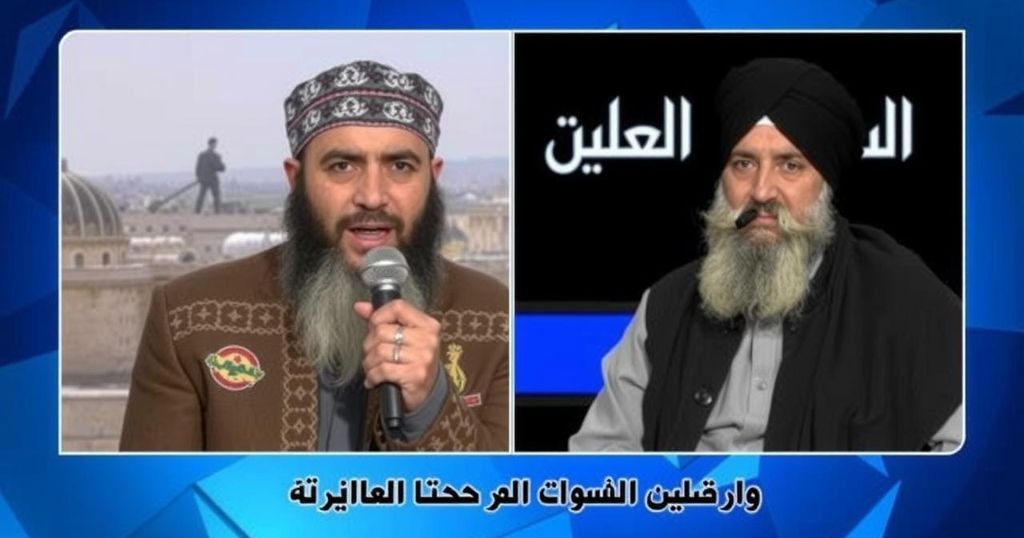In a notable interview, Syrian rebel leader Ahmad al-Julani asserted that Israel’s justifications for military intervention in Syria have ended with the departure of Iranian forces. Highlighting the need for reconstruction and stability, he called for diplomatic efforts to safeguard Syrian sovereignty and criticized the Assad regime’s failures. Julani envisions a future free from captagon production and aims to enforce state control over armed factions, marking a shift from revolution to pragmatic governance.
In a significant television interview on an opposition channel, Syrian rebel leader Ahmad “Abu Mohammad al-Julani” al-Sharaa articulated the necessity for a shift in Syria’s focus towards reconstruction and stability. He indicated that the rationale previously used by Israel to justify interventions in Syria has dissipated following the withdrawal of Iranian forces. Julani emphasized the paramount importance of diplomatic resolutions for security and urged the international community to safeguard Syria’s sovereignty against further foreign provocations. He condemned the Iranian regime’s influence, while clarifying that the disagreement was rooted in harmful policies, not an animosity towards Iranian people. Additionally, he criticized the Assad regime for its mismanagement and exploitation of Syria’s resources. Julani’s vision for Syria includes eradicating captagon production and ensuring that all armed factions submit to state oversight, highlighting a transition from revolution to governance based on law and institutional integrity.
The context of Ahmad al-Julani’s remarks lies at the intersection of the Syrian civil war’s evolving dynamics, particularly concerning the roles played by Iran and Israel. As head of Hayat Tahrir al-Sham (HTS), Julani represents a significant faction within the opposition, leading efforts to provide stability in a war-torn nation. His commentary emerges as Syria grapples with the aftermath of years of conflict, necessitating a transition from militant resistance to statehood and governance. The necessity for diplomatic engagement and the solidification of authority within Syrian affairs is particularly pressing in light of external influences and the challenges posed by the Assad regime’s historical governance. As such, Julani’s call for stability reflects a broader desire among Syrian opposition leaders to re-establish a functioning state in the wake of turmoil.
Ahmad al-Julani’s discourse during the interview underscores a pivotal transformation within the Syrian opposition, signaling a move from revolutionary zeal towards pragmatic governance centered on stability and reconstruction. His outright condemnation of past external interventions, particularly emphasizing Israel and Iran, reflects a strategic recalibration of priorities. In advocating for diplomatic channels and addressing internal socioeconomic issues, Julani presents a roadmap for Syria’s recovery and potential reintegration into international frameworks, all dependent upon prioritizing national sovereignty and law-based governance.
Original Source: www.jpost.com







